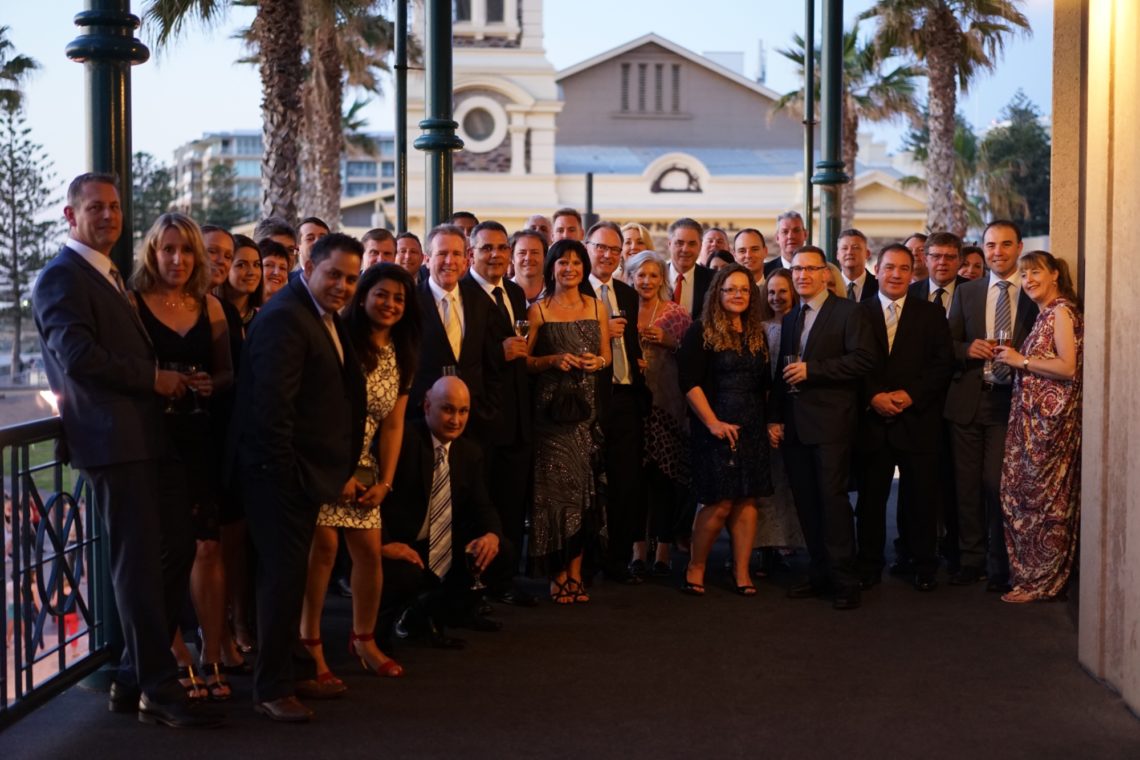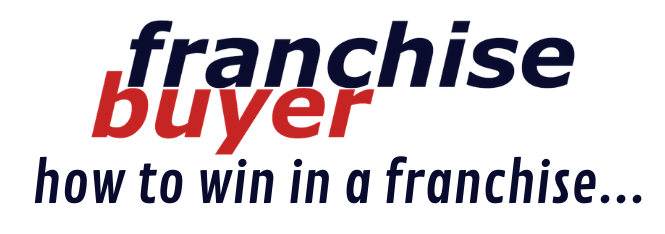March 26, 2019
Franchises, where to from here?
Franchising legend Len Ferguson reckons the industry needs a major shake-up if it’s going to survive current criticisms and the impact of online business.

The Finn Group is Australia’s largest network of business and franchise brokers with offices in all major cities and regional areas. When co- founders Len Ferguson and Steve Finn decided to set up the business with sales agencies in Brisbane and Perth in 2004, their background was in franchise recruitment.
“The franchise market in the scale we now know it, was just emerging,” recalls managing director Len Ferguson. “Boost Juice wasn’t even around, although we did sell a lot of franchises when they started. We franchised our business in 2009 to become Finn Franchise Brokers. We’re a national agency now, with franchisees all over Australia, selling hundreds of businesses a year and dealing with thousands of potential buyers a month.
After 10 years as specialised franchise brokers, in 2013, the pair expanded into general business, eventually franchising that as well.
“Franchising only makes up 10 per cent of all businesses in Australia,” says Len. “So general business was obviously a market we wanted to take advantage of and it’s now our biggest. But franchising still punches above its weight as regards how many sales are made per enquiry.”
As the major franchise-focused broker network in Australia, the group works closely with franchise head offices to grow their networks, and with individual franchise owners who want to sell. After some 20 years in the business, there isn’t much that Len doesn’t know about the game.
“I’ve probably seen it all in this business,” says Len. “I was a franchisee [Kleenmaid] initially and I went through the same processes I see now with our franchisees. Then moving into being a franchisor, and selling franchises in between that space. It’s changing a bit now in that there are a lot of good service-based franchise businesses — like what we do now. We offer professional services and you don’t really need to have experience in that to do what we do — you just need a good business sense and sales skills.”
Sector dissatisfaction and conflict
Len is concerned about the increasing instances of franchisee dissatisfaction and conflict with franchisors he has witnessed in recent years.
“As a broker, I’ve seen the dramas that can occur between franchisor and franchisee, how emotion drives a lot of that,” he says. “As a franchisor, I’ve had it happen to me. It’s pretty endemic in the industry. There is generally angst between franchisees and franchisors and I’m not sure why that is because ideally they should both be working towards common goals.”
Evolving franchise model
Recognising things need to change within the industry, The Finn Group has rethought its own franchisor business model to offer specialised services such as financial planning and lending solutions on a fee-for-service basis.
“We had to evolve our business,” says Len.

“We reduced our support staff and moved to a ‘user pays’ model. We had franchisees paying us $100,000 a year in franchise fees and I hardly ever talked to them. They’d developed their business skills and grown their business to the point they didn’t need what we were offering in support. So we needed to develop a fairer model.
We had staff and resources we had to pay
for as a franchisor that the majority of our franchisees weren’t using. Now the franchisee pays to access the tools we offer — generally
a lot less than they (previously) paid in the percentage — and only interacts when they need us. It put more money back into the bottom line of our franchisees.”
Industry in upheaval
The past couple of years have seen major upheavals in the industry, culminating in the senate inquiry into the operation and effectiveness of the Franchising Code of Conduct, which Len reckons may well cause more problems than it solves.
“We’re approaching a new environment now, with changes in government regulations, where unfortunately we’re focusing on who to blame,” says Len.
“To give you an example, I did an interview where the journalist said franchisors were to blame for franchisees’ high costs because they weren’t negotiating good enough leases. But when the franchisor is negotiating a lease and the shopping centre won’t budge on the rent, what’s the choice? If the franchisor says ‘’we’re out of here, the franchisee loses their investment. So the franchisor makes the best deal they can to get the franchisee in there.”
The Retail Food Group (RFG) was a major target of the senate inquiry and Len says that while much of the criticism of that franchisor was justified, the fallout will actually affect its franchisees substantially.

“RFG had about 3000 franchisees and 150–200 of them were being treated badly. But 2000- plus RFG franchises were good. After all the bad press, RFG has been dragged through the mud and even if you own a good RFG business, you can’t actually sell it. Any equity you had in that business has been destroyed. The media has done more damage to RFG franchisees than RFG ever did.”
For Len, this is symptomatic of the conflict he sees permeating the industry. “Conflict solves nothing. I’ve seen it happen where the franchisee sinks absolutely everything into the business and when things go wrong, panic sets in. They attack the franchisor, asking ‘what are you doing for me?’ What they should be doing is trying to build up goodwill with the franchisor to get help. When they attack the franchisor, the franchisor often retaliates in kind, which only exaggerates the problem.”
He says that frequently a lack of business expertise on the part of the franchisee is the problem. “A lot of the time, you’re dealing
with people who have no real business sense. They’re first-time operators who haven’t gone through the trials and tribulations of owning a business. Through the Franchise Council I work with a lot of franchisors. Generally, they want their franchisees to succeed and grow. But we see franchisees banding together against the franchisor, feeling like they’ve got a common target. I don’t know of any franchisor in Australia that hasn’t experienced that.”
Responsible franchising
Taking ownership of a franchise should be a lot more than just picking up a key to the shop. “Responsible franchising is a good term for it, because that means keeping expectations realistic,” says Len. “Franchisees often go into a business with the wrong expectations, thinking they’ll buy the business one week and be driving a BMW the next. Owning a business is bloody hard work, whether you own a franchise or not. The franchise gives you a leg up, but it doesn’t mean you don’t have to put in the hard work.”
Conceding that some franchisors also have to pull their heads in a bit and not over-extend their brand by trying to squeeze too much juice from the orange, Len flags the need for responsible marketing and professional impact studies.
The unsustainability of the current franchising model is something Len feels should be the subject of an urgent and ongoing conversation within the industry.
“I’ve come to the conclusion the franchise model is pretty much unsustainable in its current format. There’s not enough money in it now in Australia. A lot of businesses don’t generate more than $10,000–$15,000 a week. When you’re talking an average $150,000 occupancy cost, then wages and cost of goods on top of that, you’ve got retail businesses turning over much the same as they were 20 years ago. The person running the place, the franchisee, is not making as much money as he pays his staff.

We’ve got franchisees not paying themselves anything — they’ve got nothing left after paying their franchise fees. But it’s a really crowded market and people are scared they’ll lose business if they raise prices.”
Despite the risk and because many franchises are at critical solvency levels, Len advocates raising prices. “We’ve got to have price rises or franchisors have got to find a different model. Maybe franchisors should learn to live on less and provide reduced services to their franchisees, but I’m not sure the majority of them are ready for that because it would be such a big change. From my perspective it’s common sense. The franchise model has been the same for quite some time. In good times, when prices are in sync with inflation, it’s OK, but right now we’ve got franchisees earning less than $50,000 a year. It’s a very thin margin and it doesn’t take much negative impact for those businesses to start really hurting. It comes down to sustainable business — for franchisee and franchisor — and that probably means charging higher prices and not being so fearful of losing customers that you keep prices low while everything else climbs through the roof.”
Finance is the life blood of franchising
The banking Royal Commission has also had a knock-on effect in the franchising industry, restricting finance availability to potential small business owners and franchisees.
“Finance is the life blood of franchising — to grow your network. But as a broker trying to sell businesses now, it’s virtually impossible to get finance,” says Len. I was at a conference in Sydney run by the Australian Small Business Association where they said the situation is critical.”
The five-year loan terms “that banks love imposing” can also be a two-edged sword. “Five-year terms can be a noose around the necks of franchisees, the thing that drives them to the wall. Unscrupulous franchisors will make them pay out their contract. It sends them bankrupt. A franchisor should never want to send a franchisee bankrupt — and vice versa.” With the advent of low-overhead online businesses, restricted finance and tightened regulations under the Protecting Vulnerable Workers Act, Len is dubious about the immediate future for franchising.

“There will be a bit of a slump over the next couple of years. With all the new regulations, many franchisors have to hire new staff to meet obligations. There’s not enough money in the model to do that well. We need to re- evaluate and we need responsible franchising laws. We [Finn Group] used to get 2000-3000 buyers a month coming to us. That’s basically halved. There are less buyers looking to get into business, not just a franchise but small business ownership in general, less to take the risk.
A lot of people don’t see franchising as less risky now — they see it as just as risky as normal business. The ripple effects are pronounced. Government will implement changes in a kneejerk reaction to the senate inquiry. Eventually, they’ll realise it doesn’t work and wind things back. But in the interim, franchisors won’t invest so brands won’t grow. I’ve spoken to a lot of people in the industry who say they’re getting out. They don’t want to do franchising any more because they can see there will be a responsibility shift back to the franchisor. Under the Protecting Vulnerable Workers Act, if the franchisee does the wrong thing, I’m now responsible as the franchisor. If I’m responsible, why would I franchise? Why wouldn’t I just change the way I do business? Franchising must think about building a model to appeal to the future. That’s the real challenge for franchising — it needs to evolve.”
Interested to know more about Len? www.franchisebuyer.com.au/fran...















